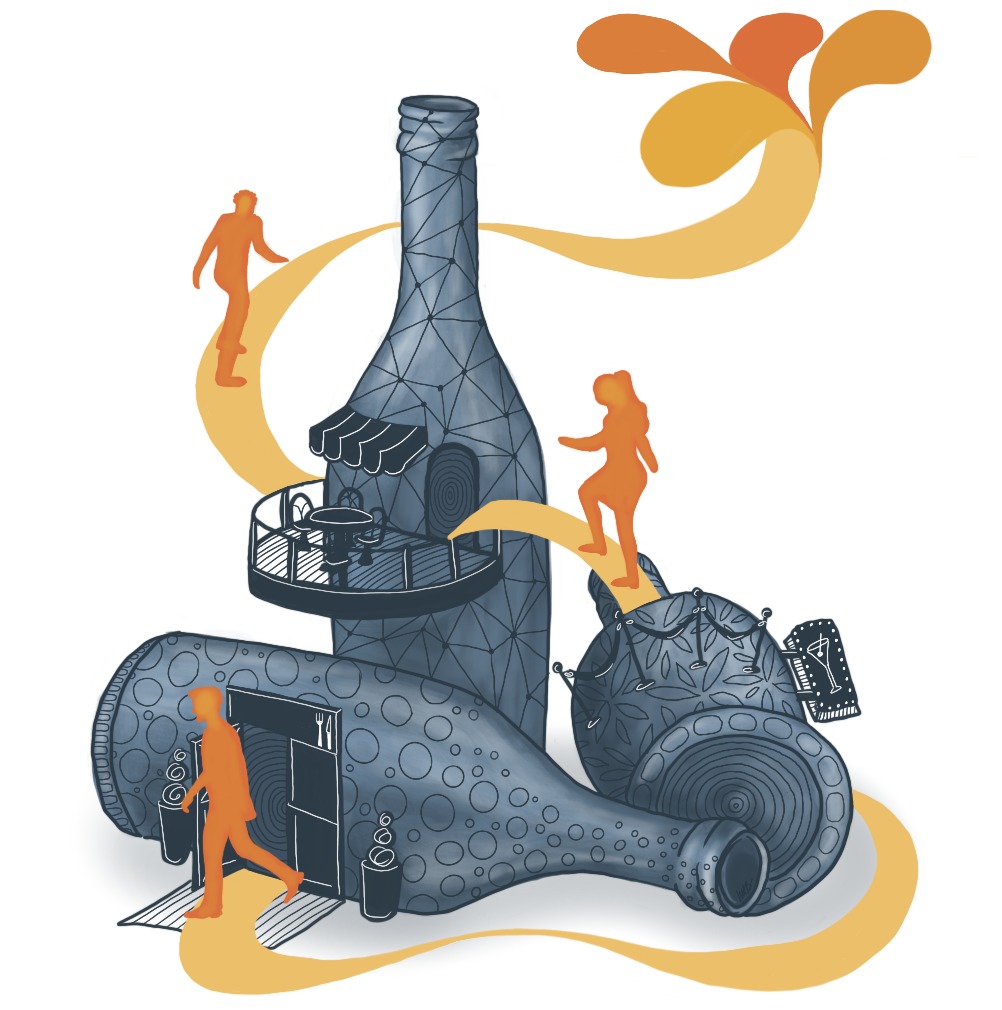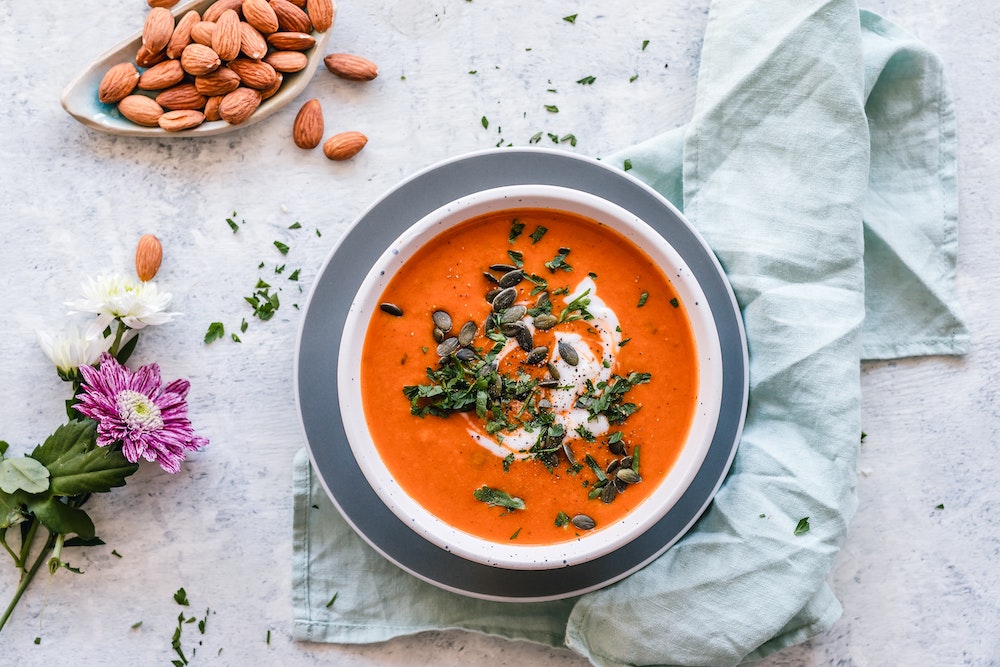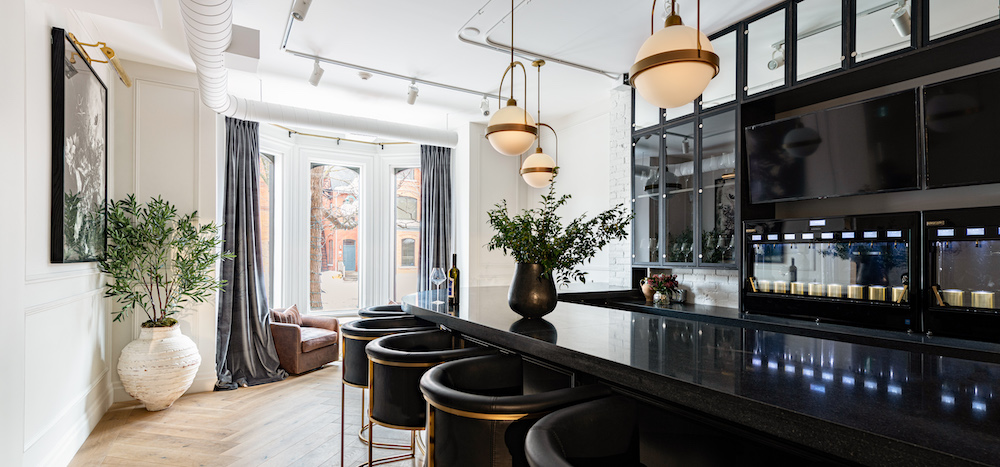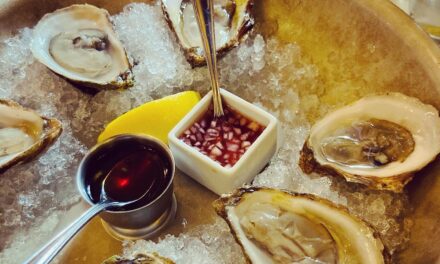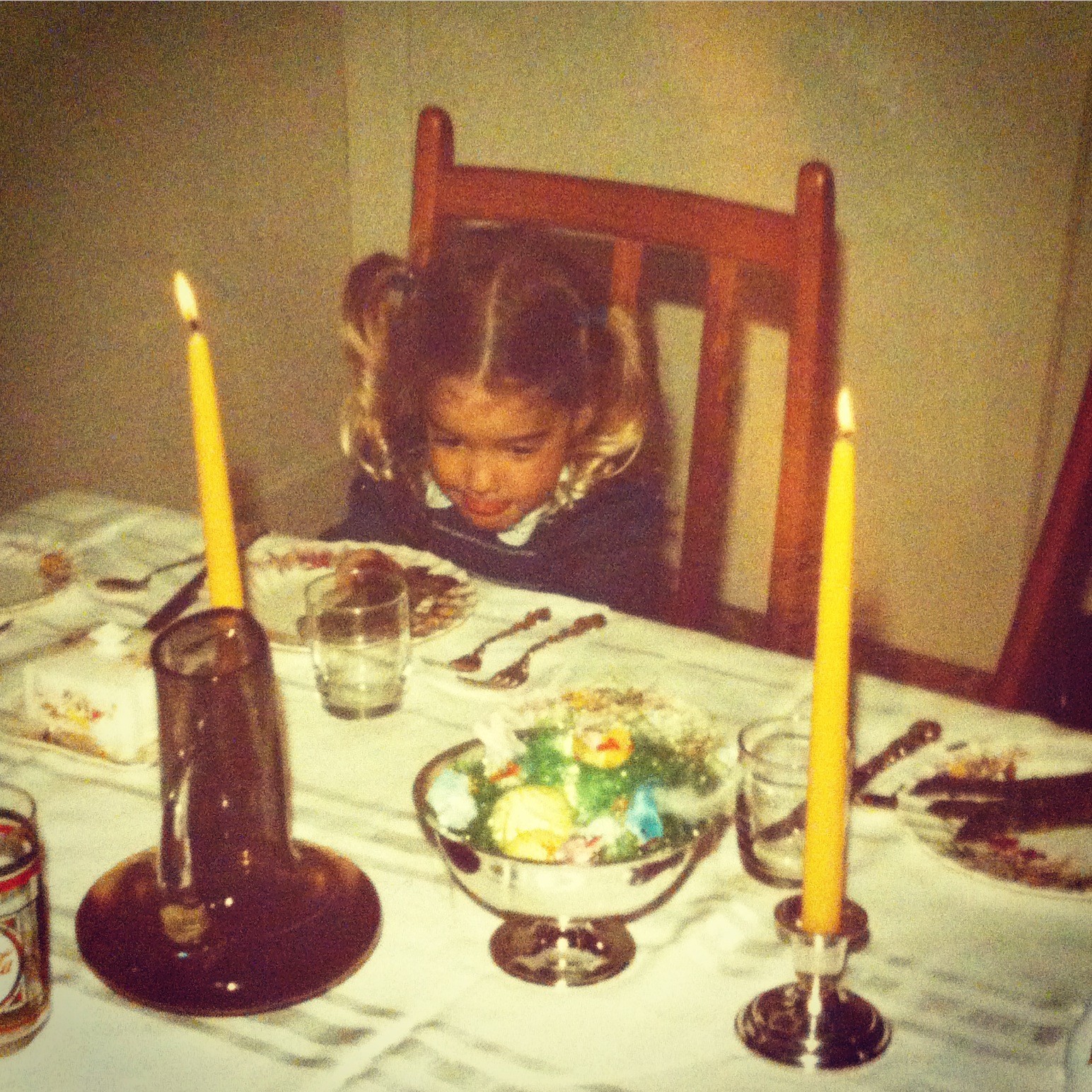“How’s everything?”
This is something I’ve said in a restaurant probably a million times, to a table full of diners, to a couple cuddled up at the bar, or to a lone diner reading a book while sipping a whiskey neat. It’s one of the many ways we industry folk check in with our guests. There are countless subtle ways, too, of course. Although I’m now “former industry”, I still look back and think of many shifts when in the back of my mind, I had hoped someone would ask me that same question. You know that saying, “check on your strong friend”? Well, that’s me, and I’m guessing it could also be your favourite bartender, the cook you work alongside, or the person planning or hosting your event.
People who have devoted their career (or even a large part of it) to the field of hospitality are some of the strongest people I know. In my opinion, they are essential workers. They prep for days, chop for hours, withstand the heat of the gas flame and the frigid temps of the walk-in. They balance flutes on a tray, eat their dinner sitting on a milk crate, carry heavy wine boxes, and glide through a packed dining room with ease. They anticipate guests’ needs, pretend they’re hearing a diner’s joke for the first time, and expertly make beautiful cocktails at an alarming speed. And let’s not forget the marketing and social media content they create on top of everything else. A lot of their hard work is never even witnessed by guests, and they are experts at keeping a stiff upper lip and a placid smile in the eye of a storm or in the face of a challenging guest interaction. This is only the tip of the iceberg, as this industry is a tough one to work in, and often those who work in it don’t get the support they deserve.
To say that the past two years have looked different for many of these hospitality heroes is a massive understatement. Between lockdowns, CERB, re-opening, closing, and re-opening again, checking vaccines at the door, enforcing mask-wearing, and generally trying to make ends meet, life has been challenging to say the least. Many of them said a wistful goodbye to the industry that raised them to seek out jobs that can withstand a pandemic, or to reinvent their career altogether. Some have taken a moment to pause and reflect, to take stock – as many of us have likely done, regardless of the industry in which we work. In my own circles I’ve seen a whole range of behaviour changes amongst industry staff. Some have continued to work when possible and are still battling it out, hoping for the day when dining can look “normal” again. Others have coped in different ways – some clinging to familiar coping mechanisms, others trying on new habits and behaviours for size. One thing I’ve noticed quite a bit, are more and more industry staff drinking less, or for some, completely getting sober.
If food is everything, what about the people behind the food?
When I started this column, I stated “food is everything”. But let’s go one further. If food is everything, what about the people behind the food? I wanted to check in on some of our “strong friends”. This month I decided to speak to some industry staff who have decided to stop drinking.
Drinking is a tricky thing to talk about and write about. On one hand, wine, cocktails, beer and spirits are an essential part of the culinary experience, and they make way for creativity, flavour, and full-blown industries of their own. Having said that, how people interact with alcohol can be as specific and personal as what people choose to eat, or how they pray. Personally, I’ve used alcohol as a coping mechanism for anxiety and stress. I’ve also made choices while working in the industry to allow myself to be carried away by alcohol either as a reward, a party catalyst, or a mood enhancer. It’s complicated, but in this industry more than others, alcohol is readily accessible, normalised, and often encouraged and glorified. For some, that can be problematic. As a result, some people are deciding to cut back, or stop drinking altogether. Also, I’ve noticed lately it seems like more people are sharing their sobriety stories. There are apps for staying sober, podcasts on the topic, and a wide variety of non-alcoholic beverages available for sale. With all of this in mind, I decided to reach out to people in the industry who have made the decision to stop drinking.
Here are their stories.
First, I spoke with April Wozny, an Agency and Event Producer in Toronto. She has been working in the nightlife/event industry for 12 years. “I was the absolute party girl,” said April. “I’m pretty convinced I was only invited to parties to get it started.” April has been throwing a monthly queer dance party in Toronto since 2009. “I rip-roared through my 20s being the life of the party. I was really good at drinking until it wasn’t fun anymore. Nightlife was getting to me. And well, the rest of my trauma I hadn’t dealt with. I got sober 6yrs into my party (2015). I really contemplated whether or not I was able to navigate hosting a party and being sober. Nightlife is built on booze and drugs. I wondered if I no longer had a place.”
During that first year, April hid her sobriety, “faking plain sodas as vodka sodas”, but eventually she decided to “come out of the sober closet”. “I wanted to rid my own sober shame but more importantly, I was actually having true fun.”
She wants people to know, “It is possible to still go out without using substances and have fun.” Today, she speaks exactly on this topic, and still runs that same queer dance party, only now, she does it sober. April believes anyone else struggling can still successfully work in this industry without drinking, “with a good support system and tools in your toolbox, you can navigate any situation”, she said. “Even if you’re swimming sober in a sea of drunk people.”
“It is possible to still go out without using substances and have fun.”
I then spoke to Veronique Rouleau who is working in Ottawa-Gatineau. Veronique has been working in the industry for 10 years, and she is currently a server and sommelier at Giulia. Her choice to stop drinking is more recent. “I decided to stop drinking in late September of 2020, after a summer of binge drinking and abuse, working at a wine bar and at another high-end restaurant in Ottawa. My relationship with alcohol was extremely toxic and complex at that time. After having access to alcohol all the time working as a bartender and then as a somm, I had failed at drawing the line between drinking for work and drinking at work”, she said.
It wasn’t an easy decision, to say the least, and things felt challenging for Veronique. “Things started to feel really unmanageable probably two months before I decided to get sober. I knew I had to change, but at this time, had no clue how to do so properly.” At first, she decided to take a step back from the industry and quit her job. “Work became extremely hard and painful because I was using all sorts of excuses to not partake in drinking. I had stepped back from being a sommelier and was a hostess/support staff where I was working, to remove myself from the drinking part, but because I was still working in the same environment, it was really hard to not taste products or hide the fact that I wasn’t drinking anymore. When I decided to quit and leave the industry, I had only told my close friends at work and my GM.”
She then took a 9-month hiatus, which happened to coincide with government closures during the pandemic. During this time Veronique sought out therapy and did “a ton of personal work”. When she felt ready to return to work, she stayed with the same restaurant group but chose to seek out a change of scenery with a different restaurant. “The opportunity to start fresh with a new restaurant concept and coworkers helped a lot”, she said.
“I had failed at drawing the line between drinking for work and drinking at work.”
Like April, Veronique mentioned the importance of support and tools in which to deal with this particular challenge, and she recognizes that she was fortunate to have a supportive community at work when deciding to get sober. “It was hard to face the music, but I knew it was the right choice. From the moment I stopped working as a sommelier and handed in my notice, to this day, I have had unconditional support from my peers in the industry.” Also, she realises that for many, it may not be easy to access clinical mental health and addiction support. “Because of the precarious health care system in Quebec, I decided to look for private therapists, and pay out of pocket, to at least get started. Meanwhile, I was put on a waiting list to be paired with a psychiatrist and that took around 4 months of waiting.”
Veronique is also sharing her story, using Instagram and Facebook to post about her sobriety. “I was posting my milestones, sharing the hard days, and celebrating the little victories very publicly, and this isn’t for everybody, but during a pandemic, it 100% helped me because I had friends from all around the world that reached out to me.”
One of the more challenging aspects for Veronique was the social one, but her new restaurant and colleagues have been supportive. “During my first month back, I would immediately leave the premises as soon as I was done, to not tempt myself and fall into old habits. About a month in, my sobriety was welcomed so warmly by my colleagues, that it felt very natural to stay and enjoy sparkling water or a non-alcoholic beer with them.” She also found that working the closing shift helped. “It almost is easier when I am in charge of closing, because I have a purpose and a role to play so staying sober only makes sense.”
Lastly, I spoke to Scott Baragar, a chef and musician who has worked in the industry for over 15 years. Scott is currently working as the Kitchen Manager at Impact Kitchen in Toronto. When it comes to addiction, the term “rock bottom” is common, and Scott has definitely hit that bottom, and a few bottoms below it. But, like many of the “strong friends” we know in the industry, he was able to rise up and face his challenges, with the help of a supportive community.
“As a chef and a musician, my professional careers have always had alcohol very close by”, he shared. “For years, I was in denial about the hold that alcohol had on me. I floated through life in a state of drunken bliss, confident in my career gains, yet unwilling to address the mounting losses, embarrassment, financial stress, fractured friendships, and eventual health issues that coalesce around a self-proclaimed functional alcoholic.”
Roughly three years ago, in Scott’s words, “everything collided”. “I have always been someone who suffers from severe depression and it was really flaring up”, said Scott. At the time, he was in charge of a thriving food program, but didn’t feel supported or respected by management. As a result, his resentment grew, culminating into “an endless cycle of depression, self-medication (through alcohol and cocaine), and bouts of self-loathing.”
“I’ve wiped away the years of alcoholism to find a person who is much stronger, vibrant, valuable, and way less complicated underneath all of it.”
“It became so much that I was becoming a much darker version of myself”, he said. “My social fouls started piling up at an unmanageable pace. My depression grew to the point where I was starting to have dark thoughts. I had to leave the job I was in. Luckily, Scott has a supportive wife. “She was fully supportive of me – she knew I couldn’t ever be happy where I was and she let me take my time in finding somewhere where I could be.”
After taking a few months off, Scott started to help a friend at their cafe. For a while, he felt he was “starting to resemble a happy person.” Enter St. Patrick’s Day weekend, 2020. “Immediately everything shut down. I could no longer work, but the government quickly put together the CERB program, so I joined”, said Scott. “I ended up in a situation where I was taking home more than I was while working. Instead of doing things to better myself, like taking up needlepoint, saxophone, or calligraphy, I just drank. I was getting blackout drunk multiple times per week. The strain on my marriage was untenable. I had to make a change.”
“Instead of doing something to really address the problem, I just got another part-time job to try and fill my time. So again I fell into the vicious cycle of working as little[as possible] and getting demolished as much as possible. Then, after nearly a year of working part-time for a catering company, the lockdowns became too much and they folded. I was out of work again.”
At this point, Scott was feeling out of control. “I would only ever get out of bed to go buy whisky and beer at the liquor store across the street or meet my cocaine dealer out front. I couldn’t cope with anything anymore. I didn’t see a future and suicidal thoughts started becoming more intense and with more frequency. I was on a very dark path, and I was starting to plan my escape from this mortal coil.”
To add insult to injury, he was also dealing with grief, with the loss of his grandmother and good friend who died the same day, this past July, followed shortly by the deaths of his uncle and cousin. “And that was it for me”, he said. “I had no way to process this grief. It was almost comical how much sorrow had been bestowed upon myself and my family. It took me losing four people close to me in two weeks that made me reassess my use of this life I’ve been given.”
At this point, things started to change. “I finally decided that I needed to take things seriously. I had only just casually been addressing my alcoholism. It was at this moment that I just went for it.” Scott sought out guidance and an invitation to an Alcoholics Anonymous meeting from a friend. He also worked on his resume and applied to some “serious jobs”. “I started treating my wife like the absolute gem of a person that she is. I started playing disc golf. I was enjoying playing music again. My thoughts became clearer. Holy shit! I had only stopped drinking for a few weeks and was noticing all kinds of positive changes in my life.”
Scott ended up getting one of the jobs he applied for, and he feels it has been a crucial part of his success in staying sober. “I got lucky and found an upper management position within a great company, I’m a role model and a leader now, my marriage is the best it’s ever been and my friends have supported me so much.”
Not to say it’s been easy by any means, Scott is definitely noticing a change. “I’ve wiped away the years of alcoholism to find a person who is much stronger, vibrant, valuable, and way less complicated underneath all of it.” He’s planning some projects like a sober pub night pop-up which he plans to work on with his brother, who he believes doesn’t drink because “he always saw me being messed up”. As the adage goes, Scott says, “I’ll continue to take it one day at a time, but with every day that passes, it makes the next day easier.”
To wrap up our conversations, I decided to ask April, Veronique, and Scott to weigh in on a few questions I had about drinking and how it relates to the restaurant industry.
GFR: What one thing would you change or implement in the restaurant industry as it relates to drinking?
April: “OFFER. MORE. AF(alcohol-free). DRINKS. ON. THE. MENU. Rolling up to a bar and drinking coca-cola or a shitty soda water just doesn’t cut it. There needs to be more availability so the AF crowd can feel included and not easily ousted for their shitty pop drink. As for nightlife, I would love to see more sober dance parties! I know the bar makes money on booze but as it stands, AF/mocktails cost the same as an alcoholic beverage. So there’s the money maker right there.”
Veronique: “More awareness about heavy drinking, how to cope without booze and the long-term effects of heavy/binge drinking.”
Scott: “Alcohol needs to stop being used as an incentive or payment. Alcohol use has been ingrained in the hospitality industry for centuries. It’s just so easy to offer staff a drink as a reward for a great service, or in lieu of pay for helping with an odd job. It would take a monumental shift in culture to make the change. Like most things, it comes down to communication. The prevalence of substance abuse issues can be gleaned for leaders who have dealt with their own problems. Maybe start an initiative around establishments that serve liquor. Have literature on hand to point employees in the right direction for help.”
And as promised at the end of last month’s column, I asked them:
GFR: What do you think about the non-alcoholic alternatives that are bursting onto the market these days?
April: “It took me a while to try them as I thought they might be triggering. But I am actually ok with them. Partake beer is pretty decent and I don’t even like beer. Leitz sparkling Riesling is good too. I’ve heard good things about Acid League which I have been dying to try. It would be nice to see the LCBO carry AF drinks.”
Veronique: “I think non-alcoholic beers are great and a great way to help someone taper off or during their first months sober. Unsweetened mocktails are great, but those that are juice-forward are a little infantilizing. Dealcoholized wine is a NIGHTMARE for a dry somm haha… but stuff like the Proxies from Acid League are a great alternative! Kombucha helped me a lot, same for ginger beer!”
Scott: “I drink non-alcoholic beer all the time. It’s a great placebo while out with friends.”
I want to thank April, Veronique, and Scott for sharing so openly. Hearing their stories gave me more to think about when it comes to the overall wellness of those who prepare and serve our food and drink.
Pandemic notwithstanding, restaurant industry workers have forged through their careers with grit, resilience, and amazing emotional strength. But does it need to be this hard? The meaning of the word restaurant points to restoring one’s health or spirit, but is it really doing its job if it’s depleting the spirits of those who provide the product, service, and experience?
Next month, I’ll be continuing this conversation, exploring a wider view of the restaurant industry and its workers. Spoiler alert – there are some excellent organisations that exist to educate and provide support for our “strong friends”.
Title illustration by Wendy Heagney-Bakewell

